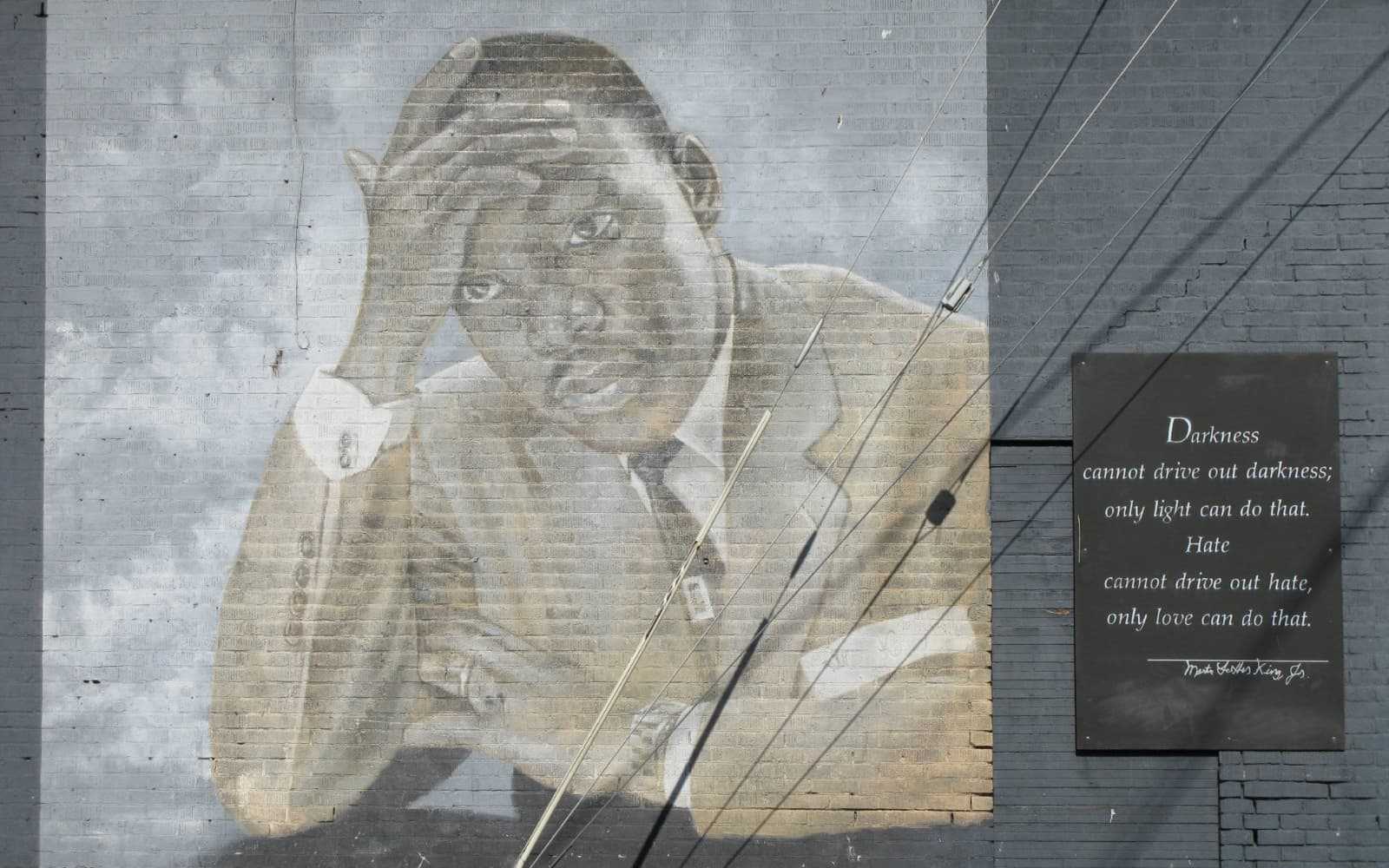My Son’s Martin Luther King Day Question: “Daddy, Can We Teach the Bad Guys Goodness?”

My five-year-old recently reminded me, quite emphatically, that he didn’t have school on Monday because of Martin Luther King Jr. Day. He was, of course, simply excited to have a day off from kindergarten. But this seemed to be a perfect “teachable moment,” so I sat my kids down to tell them a little bit about the holiday’s namesake. But where do you start with someone like King?
I suppose starting with the evils he fought against is as good a place as any. And so I told them that there were people — that there still are people — who hold to the silly/sad idea that a person’s skin color ultimately determines their value as a human being. That some people still believe that if someone’s skin color is different than theirs, then that person is less valuable and doesn’t deserve as much respect, kindness, or fairness.
I asked them about their friend Josh, whose skin is several shades darker than theirs. I asked them if Josh was really all that different from them — if it would be okay for someone treat him badly simply because he looked a little different. I asked my kids if it would be okay to treat anyone, even people who aren’t their friends, differently because of their skin color. (Thankfully, my kids responded with an emphatic “No!” to these questions.)
I told them that God loves all people and that everyone — regardless of their skin color — has been created in God’s image, and so deserves respect. I want them to know that the many different skin colors, and the ethnicities and cultures they represent, are all loved by God, and they all have something to bring to His glory. And that throughout his life, and up until his tragic murder, Martin Luther King Jr. devoted his life to reminding everyone — even the bad guys who persecuted and harassed King and his associates — of those simple, yet easily forgotten truths.
It was then that my four-year-old asked, with the sweetness, innocence, and lack of guile that only a four-year-old can possess, “Daddy, can we teach the bad guys goodness?”
I was taken aback. It’s a simple enough question, and yet one that many have no doubt asked throughout the years. How does one teach the “bad guys” — those whose hatred, selfishness, and ignorance have perpetuated cycles of abuse, neglect, and violence for generations — about goodness? And then I realized that is precisely what my children are doing.
When my five-year-old sees Josh, and excitedly goes running to play with him, he doesn’t merely see a boy whose skin is dark brown, or whose facial features look different than his. He sees a friend: somebody who is always up for some racing and wrestling; somebody who loves superheroes and Star Wars as much as he does; somebody that he trusts. My son loves his friend, and that is how he can teach the bad guys goodness, by showing them how valuable Josh is to him. Or, to paraphrase King’s famous words, he has judged Josh, not by the color of his skin, but by the content of his character — and that has proven more than enough.
None of this is to say that race and ethnicity don’t matter; they are not mere trivialities that have little bearing in the real world, and to pretend otherwise is misguided. But I think of all of the people in my kids’ lives who are a little different than they are, be it due to skin color, accent, disabilities, etc. And looking at my kids, and the diversity in their relationships, I realize that the best way to teach the bad guys goodness — to teach us all goodness — is to show them that, while something like skin color can’t simply be ignored (nor should it be), there are truths that are just as important, if not more so. Truths that go deeper than our skin.
This entry was originally published on Christ and Pop Culture on .